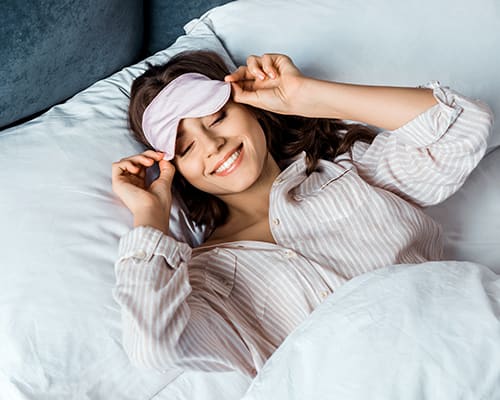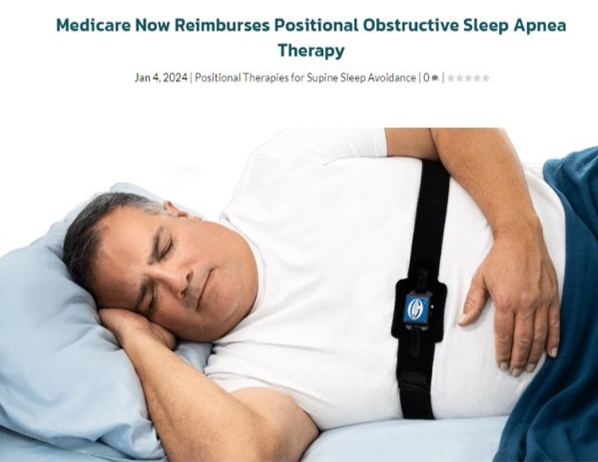Efficient Treatment Solutions for Taking Care Of Rest Disorders and Enhancing Restful Sleep
In the world of healthcare, the monitoring of sleep conditions and the pursuit for relaxing rest are essential parts of overall health. As we browse the elaborate landscape of rest problems and look for to boost our rest experience, a deeper understanding of these therapy options might hold the trick to opening a more relaxing and meeting restorative trip.
Cognitive Behavioral Therapy for Sleeping Disorders (CBT-I)
Cognitive Behavior Modification for Sleep Problems (CBT-I) is a structured, evidence-based treatment technique that concentrates on dealing with the underlying variables adding to rest disturbances. This kind of treatment intends to change actions and ideas that aggravate sleeping disorders, eventually promoting healthy sleep patterns. CBT-I normally involves several key components, including cognitive treatment, sleep limitation, stimulus control, and rest hygiene education and learning.
Cognitive treatment aids individuals identify and change negative thought patterns and ideas concerning sleep that might be hindering their ability to fall or remain asleep. Rest restriction includes limiting the quantity of time invested in bed to match the person's real sleep duration, thus enhancing sleep efficiency (cognitive behavioral therapy for insomnia (CBT-I)). Stimulus control strategies aid develop a solid association in between the bed and rest by motivating individuals to head to bed just when sleepy and to avoid participating in boosting tasks in bed
Moreover, sleep hygiene education concentrates on establishing healthy sleep behaviors, such as keeping a constant sleep schedule, producing a relaxing bedtime regimen, and optimizing the rest setting. By addressing these aspects comprehensively, CBT-I offers an efficient non-pharmacological treatment for handling insomnia and improving total rest high quality.
Sleep Health Practices
Having actually developed the foundation of cognitive restructuring and behavior modifications in dealing with insomnia via Cognitive Behavior modification for Sleep Problems (CBT-I), the emphasis now moves in the direction of exploring crucial Sleep Hygiene Practices for maintaining optimum rest quality and overall wellness.
Rest health practices encompass a variety of behaviors and ecological elements that can significantly affect one's capability to drop off to sleep and stay asleep throughout the evening. Constant sleep and wake times, creating a relaxing bedtime regimen, and maximizing the sleep environment by maintaining it dark, peaceful, and cool are vital components of good sleep health. Limiting exposure to screens prior to bedtime, staying clear of energizers like caffeine near bedtime, and participating in regular physical task throughout the day can likewise advertise far better sleep quality.
Furthermore, practicing leisure strategies such as deep breathing exercises or meditation prior to bed can help soothe the mind and prepare the body for sleep. By including these rest hygiene practices right into one's daily regimen, people can develop a healthy and balanced rest pattern that sustains restful rest and total well-being.
Leisure Methods and Mindfulness
Carrying out relaxation methods and mindfulness methods can play an essential function in promoting a sense of tranquility and advertising top quality sleep. sleep improvement therapy. These strategies aim to peaceful the mind, reduce tension, and produce an optimum atmosphere for relaxed sleep. One widely exercised approach is deep breathing exercises, where individuals concentrate on slow-moving, deep breaths to loosen up the body and mind. Modern muscular tissue relaxation involves tensing and then releasing each muscular tissue group, advertising physical leisure. Furthermore, assisted images can assist transfer people to a relaxed location in their minds, aiding in anxiety decrease and boosting sleep quality.
Mindfulness methods, such as reflection and yoga exercise, are likewise effective in promoting relaxation and improving sleep. Mindfulness encourages people to stay present in the moment, letting go of bother with the past or future. By incorporating these practices right into a bedtime regimen, individuals can signify to their bodies that it is time to prepare and unwind for sleep. Overall, integrating leisure strategies and mindfulness practices can dramatically contribute to handling rest disorders and enhancing general rest high quality.

Medicine Options for Rest Disorders
After checking out leisure techniques and mindfulness practices as non-pharmacological treatments for improving rest top quality, it is vital to think about medication options for individuals with sleep problems. In instances where lifestyle modifications and therapy do not offer adequate relief, medicine can be a beneficial device in managing rest disruptions.
Commonly recommended drugs for rest conditions include benzodiazepines, non-benzodiazepine hypnotics, antidepressants, and melatonin receptor agonists. Antidepressants, such as trazodone, can be beneficial for people with Learn More Here co-occurring anxiety and sleep disturbances - cognitive behavioral therapy for insomnia (CBT-I).
It is essential for individuals to speak cure for insomnia home remedies with a doctor to determine one of the most appropriate medicine option based upon their certain rest condition and case history.
Light Therapy for Circadian Rhythm Regulation
Light treatment, additionally known as photo-therapy, is a non-invasive treatment technique used to manage body clocks and enhance sleep-wake cycles. This therapy entails exposure to bright light that resembles natural sunlight, which assists to reset the body's biological rhythm. By revealing people to certain wavelengths of light, generally in the morning or night depending upon the desired result, light treatment can effectively adjust the body clock to advertise wakefulness throughout the day and boost relaxed rest at evening.
Research study has shown that light therapy can be especially helpful for individuals with body clock conditions, such as postponed sleep phase syndrome or jet lag. It can also be useful for those experiencing seasonal affective problem (SAD), a sort of clinical depression that usually happens throughout the cold weather when natural light direct exposure is decreased. Light therapy is normally well-tolerated and can be used along with various other therapy approaches for rest disorders to optimize end results and improve total sleep top quality.
Final Thought
To conclude, efficient therapy options for taking care of sleep disorders and improving relaxed rest consist of Cognitive Behavior modification for Insomnia (CBT-I), rest hygiene methods, relaxation strategies and mindfulness, medication choices, and light treatment for circadian rhythm regulation. These methods can assist people boost their sleep quality and overall wellness. It is very important to seek advice from a health care supplier to determine the most appropriate method for attending to rest problems.
As we browse the complex landscape of rest problems and look for to boost our sleep experience, a much deeper understanding of these more information therapy solutions may hold the trick to opening an extra relaxing and meeting corrective trip.
Sleep restriction entails restricting the amount of time spent in bed to match the person's actual sleep period, thus boosting sleep performance. Consistent rest and wake times, developing a relaxing going to bed routine, and optimizing the rest atmosphere by maintaining it dark, quiet, and cool are essential elements of great rest hygiene. Light treatment is generally well-tolerated and can be made use of in conjunction with various other therapy techniques for rest problems to enhance results and improve general rest high quality.
